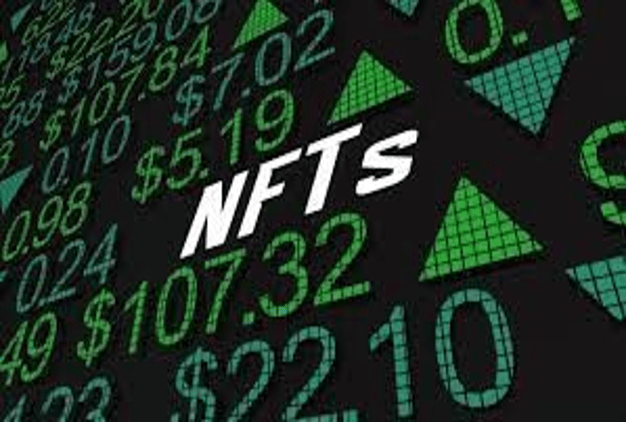NFTs- to trust or not to trust?
By Dr. Ingrid Vasiliu-Feltes, Chief Ethics & Innovation Officer GBA
Background
The global Non Fungible Token market grew at 187% from 2018 to 2020 and by 299% in 2020. It is currently estimated at $338M, however experts caution that this might be an underestimation given the transaction volume occurring for various industry segments or the sizable movement within the same segments such as the arts industry. The market cap rate for NFTs is expected to continue growing at an astonishing CAGR given the high demand and adoption rates we notice.
2021 is considered “The Year of NFTs”and it is unclear for many if this is yet another bubble ready to burst or a sustainable product. We have seen an explosive increase in social media coverage for NFTs in the art, entertainment, gaming, fashion, and music industries. It will be interesting to observe of this trend will decline or if other less predictable industries will embrace it and leverage their potential.
The record of their existence lives on a blockchain such as Ethereum, however NFTs differ from fungible cryptocurrencies as they can’t be linked to a physical asset in the real world. Ownership of a NFT confers you a token that is a record of the transaction and a hash code of the unique token associated with the specific digital asset for authentication purposes. Therefore they are also called “unique digital collectibles”.
Challenges
The legal, regulatory and ethical challenges are significant at a national level and even more complex at an international level. What are the laws that govern NFT ownership and intellectual property rights?
What regulatory agencies will be responsible for drafting guidelines?
What taxation is appropriate and who is collecting the relevant taxes?
Experts do not fully agree where exactly NFTs fit in the existing legal and regulatory frameworks. They do agree that NFTs can’t be treated just as ICOs or like digital securities.
Legal scholars also warn that we must develop stronger consumer protection laws that govern NFTs as most buyers do not have the digital literacy required to truly understand the complexities behind NFT ownership and property laws.
Those with malicious intent are almost certain to take advantage of some of the money laundering loopholes that exist in the current loosely regulated NFT industry.
Perhaps one of the most ironic legal challenges is the intellectual property law for NFTs, as most buyers have erroneous perceptions about what they actually purchased. Copyright law is not clear either and legal experts will have to tighten some of the counterfeiting
From an ethical perspective, we also have a full range of concerns we must address. They range from ensuring that basic ethical principles such as justice, autonomy, confidentiality, fidelity, integrity. beneficence, and non-maleficence are upheld.
From a data governance perspective, the full spectrum of elements must be redesigned and configured for NFTs and these include: strategy, policies, processes, standards, security, talent management, communications, and socialization of a NFT framework.
Furthermore, it is our duty to ensure that NFTs are sustainable and inclusive. Developing NFT Key Performance Indicators will need to developed in order to prevent some of the negative consequences we have encountered with other emerging technologies.
Eco-Ethics advocates have also voiced there marked opposition to NFTs given the impact they can have on the environment and have even labeled NFTs as “ environmentally irresponsible”.
The Arts world is split between those that believe that NFTs are a gateway to equal opportunity and those who believe that the greed for financial gains will overpower the original good intent and might unfortunately even end up as a method to exploit artists that are not digitally fluent or versatile in navigating the emerging technologies ecosystem.
Opportunities
One can envision application of NFT in almost every industry, as they can be anything that has a digital representation. Just recently we learned that even one tweet was sold for $2.9M, a video for $6.6M or the art work auctioned at Christie’s for $69M. It will be intriguing to monitor which industry will take the lead. Media, real estate and sports industries certainly show a lot of promise and investors are pouring massive funding into startups offering digital collectibles.
In addition to the legal, ethics and regulatory frameworks that need to bee developed, we have a moral imperative to also develop customized ethics programs for NFTs. Redesigning the education system to increase digital literacy and fluency related to digital assets, digital currencies, digital securities, and digital codes such as NFTs will be essential.
Portability, integration with DeFi and improving cyber-security features would all contribute towards ensuring longevity of these digital collectibles when we convert to the next generation of the internet. These constitute complex tasks for key stakeholders in the fintech industry over the next decade, however they also can lay the foundation of a sustainable model.
Future Directions
Creating NFTs that can actually contribute to the attainment of the UN SDGs would be ideal and the company Dole has recently launched a campaign to fight world hunger that provides an inkling of how we can actually start designing and deploying NFTs For Good.
Futurists also envision Digital Museums, DAOs and the development of a Metaverse where NFTs will be the norm.
In conclusion, when we deal with NFTs it would be wise to trust, but verify and develop proactive governance program to mitigate the potential for misuse.
- NFTs- to trust or not to trust? - June 2, 2021
- Fintech Future-Disrupt or Be Disrupted - May 2, 2021
- Fintech Future- Embracing ESG - April 11, 2021


[…] Compliance and goverance for NFTs. Ingrid Vasiliu-Feltes in XpertsLeague. […]